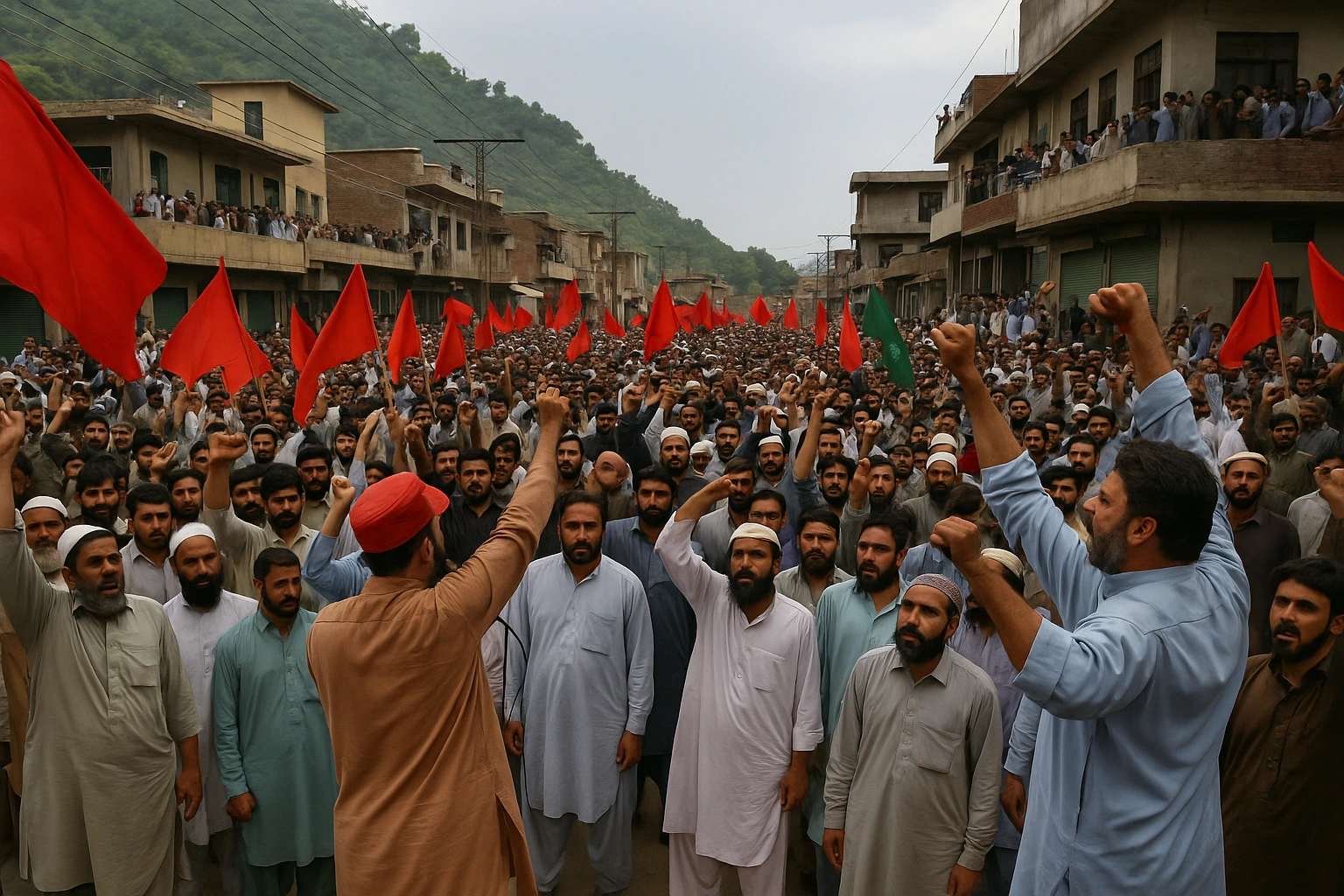On July 11, a peace march named Aman Pasoon in Khyber drew national attention. The rally was to reconcile the voices and to reconcile the justice and rights for the people in the rural regions, where the tribal system dominates in Pakistan. It was a peaceful rally and proper dialogue about the issues. But soon it morphed into a political arena. The fairy slogans turned into political slogans and a political critique of the state institutions. It became a disappointment for many when opportunity turned into a blame game. Hence, it is obvious from the recent motto of this march that it is turned into a kind of political platform.
A threshold of peace on the political podium
The intent of the rally seemed noble due to its cause. People from different schools and communities joined the rally to seek peace and stability. Such rallies were a need of the hour due to long-enduring violence and instability in the region. This rally had the potential to console the people who have been the victims of uncertainty due to security concerns.
However, it turned into a political debate when political press figures, some with dubious pasts, took the stage. Due to the involvement of political figures, the rally turned into a personal grievance. The discussion targeted the state institutions for fuelling the fire and creating mistrust in the region. So, the rally’s aim was dismantled due to such diversion.
From Advocacy to Agitation
While every citizen has the right to protest and voice discontent, there is a line that separates advocacy from agitation. The Bajaur rally crossed that line more than once. Participants issued ultimatums and threatened civil disobedience. They also called for shutting down mining operations and even give hints of armed resistance. These are not tools of peaceful protest but are tactics of disruption. When movements replace dialogue in favor of coercion and disruption, they risk alienating and sabotaging the very people they aim to represent.
Sabotaging State-Led Progress
In the contemporary phase, the war-torn areas of FATA are witnessing development projects to transform the lives of residents. The Government of Pakistan is firm to facilitate the locals of the FATA region with health, education, and other facilities. However, the proxy elements and separatist movements are impeding the ongoing development projects, which have a direct influence on the progress of the region and country.
Echoes of External Influence
The convoluted tone of the rally was to victimize the state institutions of state terrorism. Historically, this agenda has been used to weaken the state’s internal stability. However, criticism is the beauty of democratic politics, but aligning with the enemy’s agenda will lower national morale and will widen the space for foreign forces.
Political Opportunism Disguised as Activism
The re-emergence of former PTI leaders in the tribal rights movement raises more questions. Their sudden interest in the region’s well-being seems to conflict with their past actions. Do they really care about addressing the problems of the people, or are they trying to revive and make bigger their political impact by capitalizing on public frustration? Given their historical records, it’s hard not to suspect the latter which can be the case. By getting themselves into the movement, they are overshadowing the genuine voices of locals who deserve to have their issues heard, which is not a good omen for peace.
Rejecting Pathways for Peace
Pakistan has its own organized framework in place to address grievances via traditional Jirgas to parliamentary committees. These channels provide a method to seek justice and make reforms. Yet, the Aman Pasoon movement took a different route, choosing conflict and critique over dialogue. By doing so, they might be marginalizing a huge portion of supporters within the system and creating a thought that change can be brought through rebellion rather than working within the existing structures.
Fracturing the Fabric of Unity
It is not hidden that Pakistan’s sacrifices against terrorism have come at a huge cost, with thousands of people losing their lives and countless families torn apart. The sacrifices of our security forces and civilians who fought to restore peace, particularly in tribal areas, are a check to national integrity and national security. Yet, to dismiss these sacrifices as a foreign agenda is not only a destruction of history, but also a disservice to the memories and contributions of those who have sacrificed their lives and loved ones. At a time when national unity is the most important and necessary, such rhetoric only can exacerbate internal division and hate.
Suggestions
A few wise policies need to avoid such turning of events. Firstly, politics should be kept apart from peace rallies. Secondly, the sacrifices of Pakistan against terrorism should be acknowledged. Thirdly, state led progress in terrorism hit areas should be supported to give relief to the people of these areas. Besides, agitation should be strictly avoided in all kinds of protests and demonstrations. By following these policy measures, the true spirit of peace rallies can be promoted.
Conclusion: Spectacle or Sincerity?
The rally shows a perfect example of how peaceful protests can be exploited by political agendas by politicians for their own gains. Pakistan’s tribal areas have legitimate sorrows and grievances. Decades of marginalization, poverty, and displacement have further fueled these deep-seated frustrations. However, hijacking and using these sentiments for political gains only worsens the grievances and frustrations of people. Sincerity is a necessary requirement for lasting peace. True change comes from national cooperation, unity and collective endeavor that heal, and not the speeches that divide.
Disclaimer: The views and opinions expressed in this article are exclusively those of the author and do not reflect the official stance, policies, or perspectives of the Platform.








